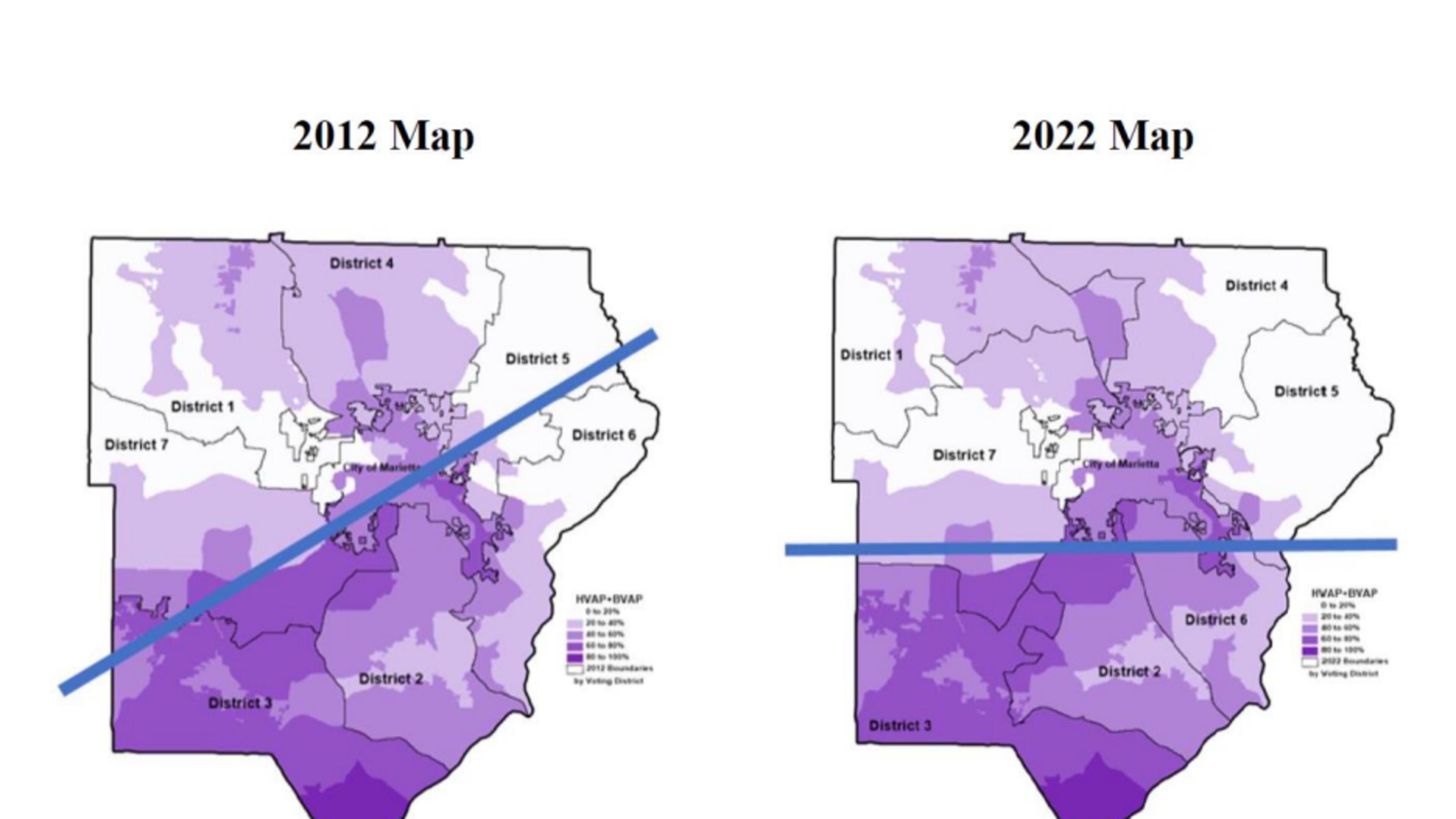Cobb school system cleared of liability in redistricting lawsuit

A recent ruling by a federal judge in a lawsuit alleging that the Cobb County School Board’s redrawn district maps are racially discriminatory means that the suit will move forward — but the school system won’t be found responsible.
The lawsuit was filed in June 2022, and originally only named the Cobb County Board of Elections and its then-director, Janine Eveler, as plaintiffs. The school district intervened in the suit in January 2023. And this week, a judge agreed with the school district’s latest push: That the lawsuit did not prove a plausible legal claim against the district, according to a news release from Cobb schools celebrating the win.
The judge’s opinion “frees the district and board from baseless accusations of racial discrimination,” a district spokesperson said in an emailed statement. But an attorney for the Southern Poverty Law Center stated that the judge didn’t rule on any of the district’s arguments related to the map.
“What this means is that our case is proceeding exactly as plaintiffs originally pled it last summer,” said SPLC attorney Poy Winichakul in an emailed statement.
A group of voting rights organizations, led by the SPLC, sued the district last year over the redrawn map that decides which portions of the county are represented by which school board members.
The group alleged in the suit that the map intentionally discriminates against communities of color by “packing” them into a small number of districts to dilute their voting power.
School boards can create new maps every 10 years in line with new U.S. Census population estimates, and the maps are approved by state lawmakers. The school board endorsed the map in December 2021 in a split vote. The board’s four Republican members, who are white, favored the map; the three Democrats, who were Black, opposed.
Attorneys for the elections board argued that the school board, as one of the map’s creators, should also be liable. But the judge disagreed, arguing that the school board was not proven to have a longstanding pattern of constitutional violations when it comes to redistricting maps.
The suit against the board of elections will continue, though the district has encouraged it to move to dismiss the case. The district will continue to participate in the case as an intervenor because it has “great interest in the outcome of the case,” and “wants to make sure the appropriate defenses are raised,” said Bob Mathis, an attorney representing Cobb schools.
The SPLC’s Winichakul is pleased the case is moving forward.
“We look forward to proving our case on the merits,” she said.



